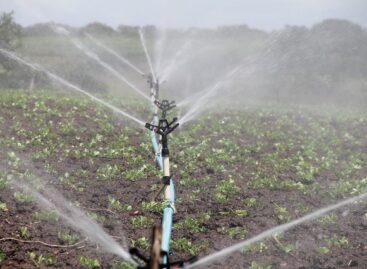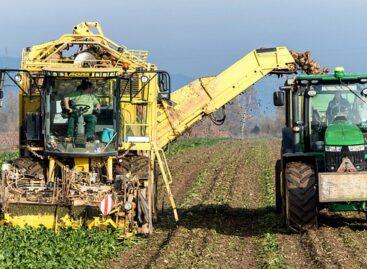The National Chamber of Agrarian Economy prepared guidelines for the new regulation of domestic and agricultural wells
Pursuant to the amendment to the law adopted by the Parliament, household and agricultural irrigation wells established without a permit before January 1, 2024 and no deeper than 50 meters are generally considered legal, they do not need to be notified, and a water law permit does not need to be applied for their operation. The National Chamber of Agrarian Economy (NAK) prepared a guide on the tasks required for the establishment, operation or termination of wells after January 1, 2024. The amendment to the law was also supported by the Association of Hungarian Farmers’ Associations and Farmers’ Cooperatives (MAGOSZ) and NAK.

(Photo: Pixabay)
From next year, the possible notification and licensing tasks related to wells will be determined by the area in which the well is established from the point of view of water resource protection. The new regulation defines risk-free and risky areas, 12% of the territory of our country belongs to the latter category, these are drinking water and/or karst water bases to be protected. The risk-free and risky areas will be shown in the water resource protection country map, which will be prepared by the National Water Resources Directorate General by August 31, 2023. On the one hand, the map will be published in the Official Gazette, and on the other hand, an online interface will be created according to the plans, where it will be possible to identify whether the affected area is classified as risk-free or risky by entering the topography number.
This is to be done in the case of wells
In the case of a well that meets domestic water needs, does not exceed a depth of 50 meters and does not reach the first water barrier layer in a risk-free area, no water rights permit or notification is required for the establishment, operation or termination of the well after January 1, 2024. However, in an area that is risky from the point of view of drinking water or karst base, the establishment, operation and termination of the well must be notified in advance to the Disaster Management Directorate, which is responsible for the location of the well. In the case of an agricultural irrigation well with a shallow depth (not exceeding 50 meters) and not reaching the first waterproof layer in a risk-free area, after January 1, 2024, the establishment, operation and termination must be notified in advance to the National Land Center, and the wells must be equipped with a digital water meter. In risky areas, the establishment, operation and termination of shallow irrigation wells will also be an activity subject to a water law permit. The National Chamber of Agriculture (NAK) has prepared a guide in order for the population and agricultural water users to be able to adapt to the new regulation on wells, which will enter into force on January 1, 2024, on the tasks required for the establishment, operation or termination of wells. The guide is available on the NAK portal.
Maintaining water resources and preserving them for future generations is not only the duty of the state, but of everyone
Given that fresh water resources are increasingly limited, it is important for farmers to keep in mind the rules of production in line with responsible, sustainable agricultural water management, in order to preserve our domestic water resources for the next generation.
NAK
Related news
Not a turnaround, but consolidation: an agricultural outlook for 2026
🎧 Hallgasd a cikket: Lejátszás Szünet Folytatás Leállítás Nyelv: Auto…
Read more >Related news
II. Green Gastronomy – Marketing Communication Workshop organized by the MMSZ HoReCa and Green Section
🎧 Hallgasd a cikket: Lejátszás Szünet Folytatás Leállítás Nyelv: Auto…
Read more >








